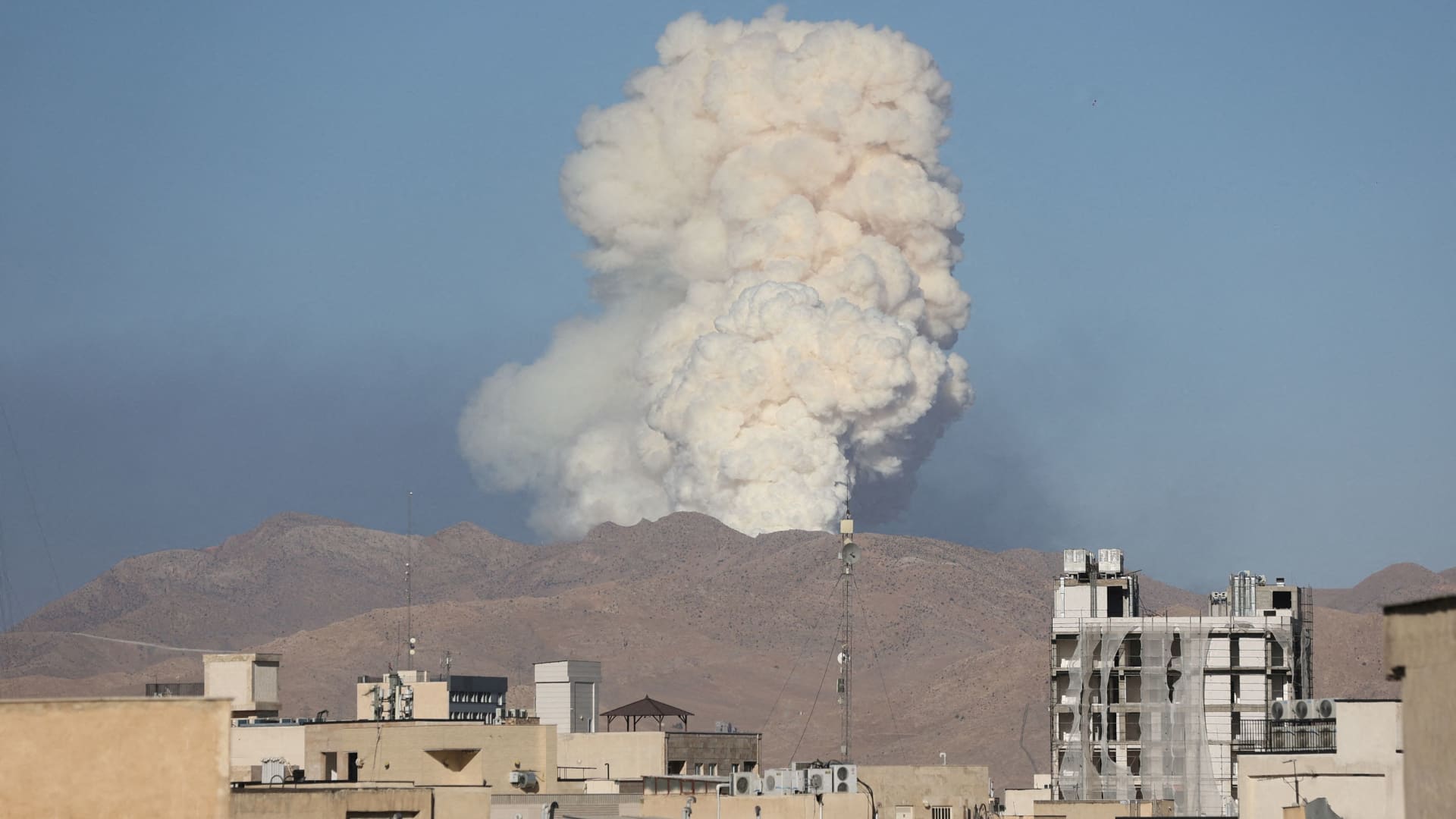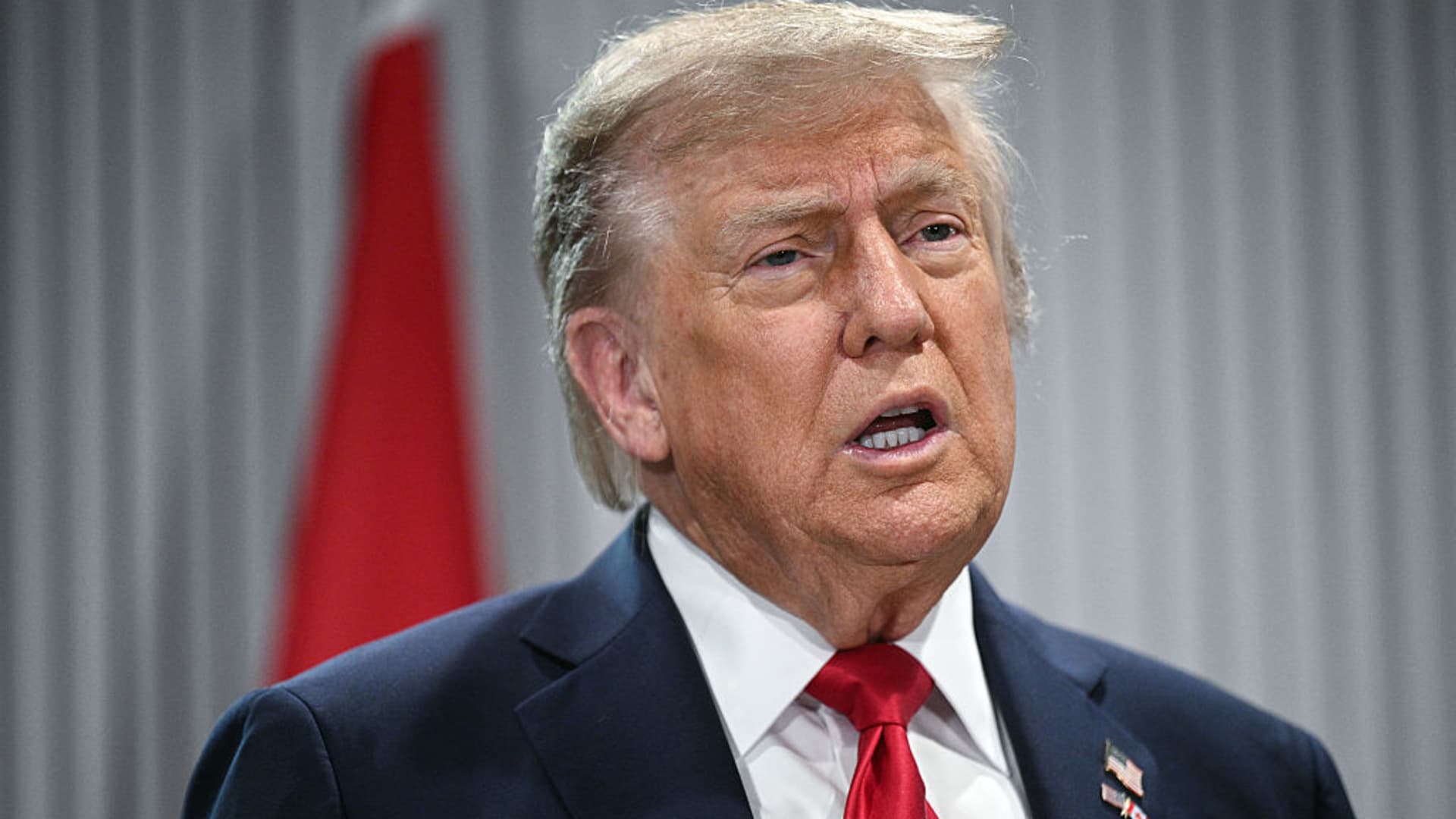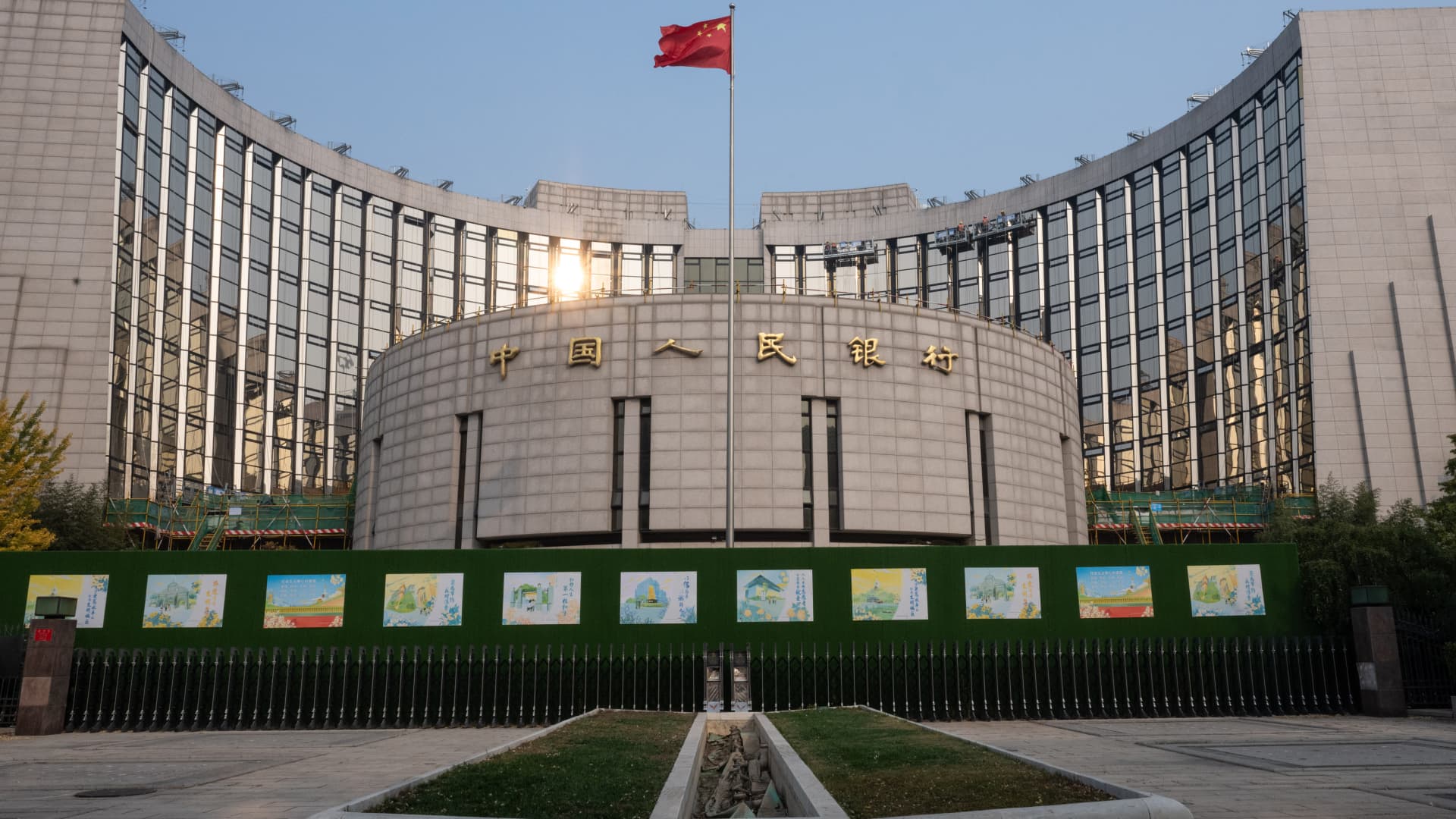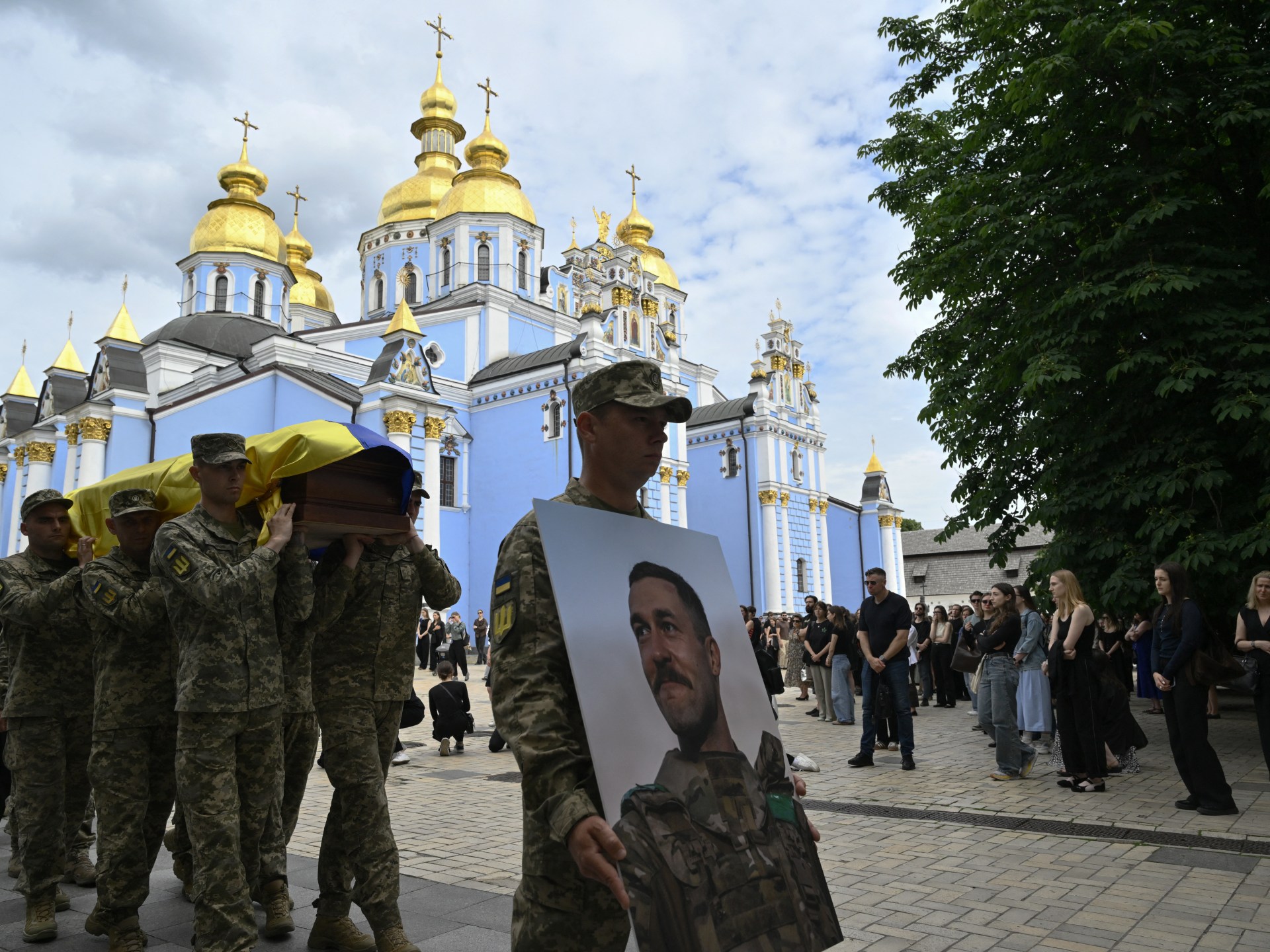Anadolu | Anadolu | Getty Images
U.S. crude oil trading closed the day up $2.06, or 2.7%, to $77.20. Global benchmark for oil, Brent, added $2.15, or 2.8%, to $78.85 a barrel, its highest close since Jan. 22.
Netanyahu ordered Israel’s military to intensify attacks on “strategic targets” in Iran and “government targets” in the country’s capital, Tehran, Israel Defense Minister Israel Katz said in a social media post. The goal of the strikes is to “undermine the ayatollah’s regime,” Katz said.
Israel’s decision to escalate its military operation against the Islamic Republic comes after an Iranian missile reportedly struck a major hospital in the southern city of Beersheba. Katz threatened Iran’s leader Ayatollah Ali Khamenei in the wake of the hospital strike.
Katz said Israel’s military “has been instructed and knows that in order to achieve all of its goals, this man absolutely should not continue to exist,” referring to Khamenei.
President Donald Trump is still considering whether to order a U.S. strike on Iran’s nuclear program. “I may do it, I may not do it, I mean nobody knows what I’m going to do,” Trump told reporters Wednesday.
The White House said Thursday that the president would decide within two weeks whether to strike Iran.
JPMorgan warned on Wednesday that regime change in a major oil producing country like Iran could have a profound impact on global oil prices. Iran is one of the top producers in OPEC.
“If history serves as a guide, further destabilization of Iran could lead to significantly higher oil prices sustained over extended periods,” Natasha Kaneva, head of global commodities research at JPMorgan, told clients in a note.
Supply losses in the wake of a regime change “are challenging to recover quickly, further supporting elevated prices,” Kaneva said.
Reuters contributed to this report.
















Leave a Reply